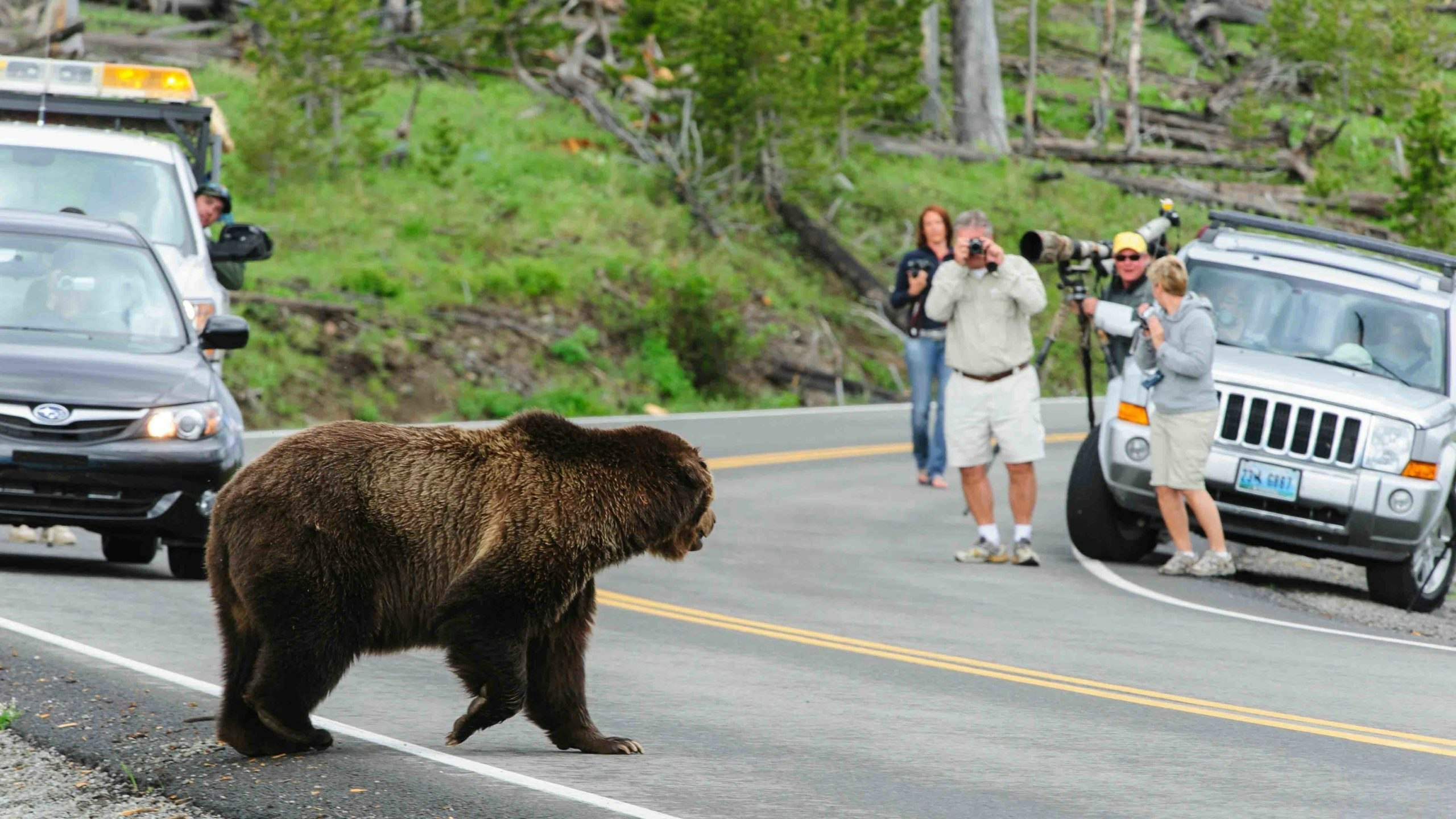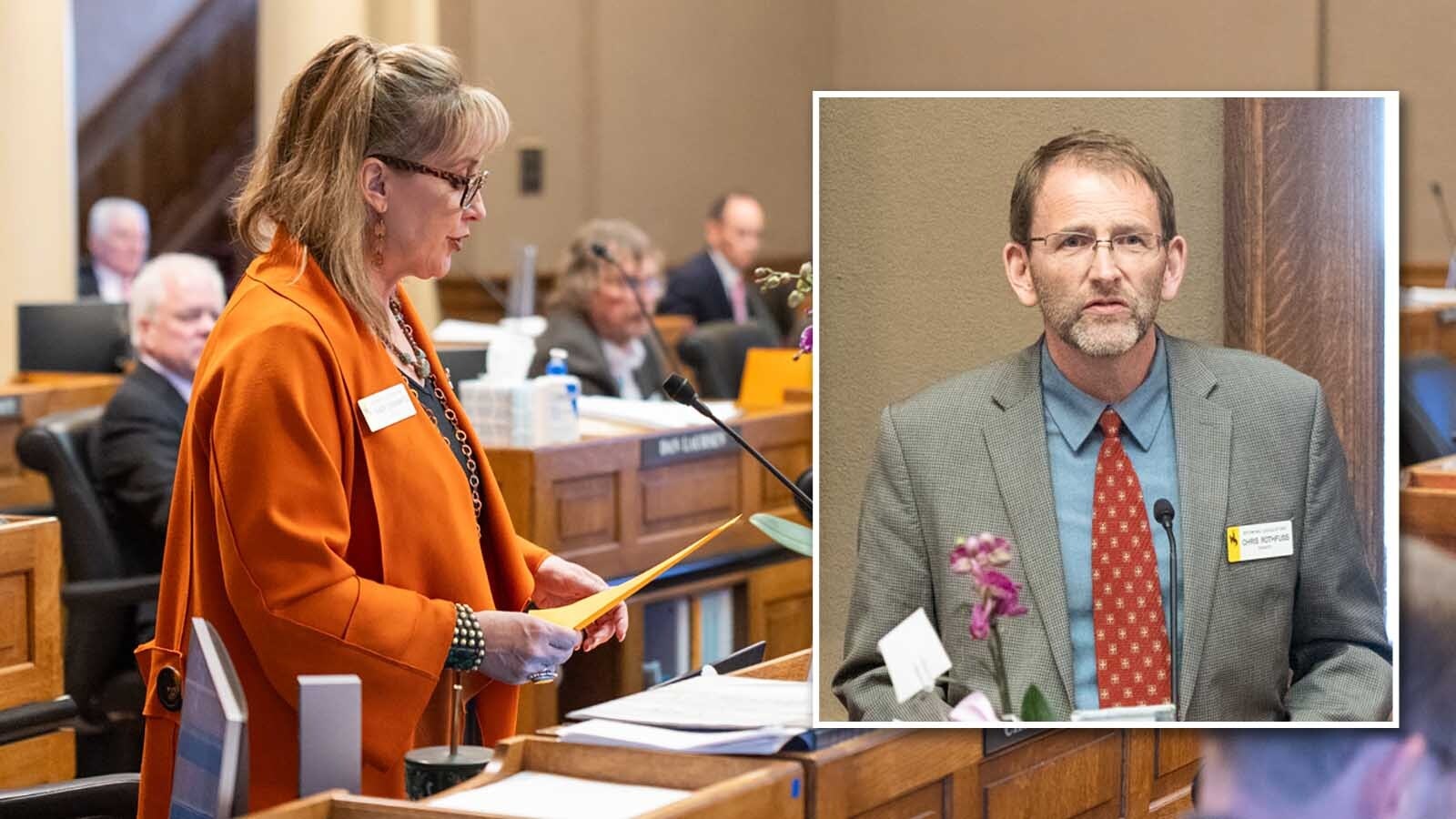Hiking the prices for some nonresident hunting tags could keep Wyoming resident’s prices lower while helping to fund wildlife conservation, members of the Wyoming Wildlife Task Force said Friday.
Nonresident hunting tag prices could also go up for Wyoming’s “Big 5” trophy species. Those include moose, bison, bighorn sheep and Rocky Mountain goats. Grizzly bears also will be included if federal protections for them are lifted.
Nonresident grizzly tags would cost $7,500 each under the current proposal.
Task Force Can’t Set Policy
The task force agreed to add the proposed Big 5 tag price hikes to a draft bill already approved in October by the state Legislature’s Travel, Recreation, Wildlife and Cultural Resources Joint Committee.
An amendment to include the Big 5 can be added before the draft bill is forwarded to the Legislature, which will consider it during its 2023 session, said task force member Sen. Larry Hicks, R-Baggs.
If the bill passes and is signed into law by Gov. Mark Gordon, the fee hikes will take effect in January 2024.
The task force doesn’t have authority to change legislation related to tag prices or to set hunting or wildlife management policy. Instead, it’s tasked with crafting recommendations for the Legislature and Wyoming Game and Fish Commission. The commission sets policy for the Wyoming Game and Fish Department.
‘50/50 Split’ Rejected
The fee hikes would apply for “special application” tags, which would make up 40% of nonresident tag applications for Wyoming’s primary big game species – elk, deer and antelope. The price hikes would not apply to the other 60% of out-of-state hunting tag applications.
There was some discussion among task force members about whether to recommended changing that to a “50/50 split.” In other words, designating half the nonresident tags to the more expensive special application pool.
That idea didn’t seem popular among either Wyoming or nonresident hunters leaving online comments on the task force’s webstie, members said.
There’s a perception that the idea is just a way to favor outfitters and their wealthiest nonresident clients, said task force member Alan Teten.
Even though that’s not the case, including the 50/50 split at this point would seem like too much and likely kill the legislation’s chances of making it through, Hicks said.
“The ‘50/50’ would be a poison pill, and we’d lose the whole shooting match,” he said.
The task force voted to keep the 50/50 split out of its recommendations for the draft bill.
Paying More To Be First
Nonresident hunters willing to shell out the extra bucks for special application tags would move to the front of the line to draw tags. That means they’d have better odds in drawings.
The draft bill would boost the special application fees that are tacked onto the base price of nonresident hunting tags. Nonresident hunters willing to take their chances in the general drawing pool would still pay only the base tag fees.
For example, the current base price of regular nonresident elk tag set by state statute is $690. The current special application fee for that tag is $576. The draft bill would raise that fee to $1,258. That means the tag would cost hunters entering the special draws a total of $1,948.
The end cost for special draw privileges would hit $1,208 for deer tags and $1,198 for antelope.
Big 5 Price Hikes
In addition to the proposed $7,500 for a grizzly tag, the task force recommends prices of $3,000 for nonresident mountain goat and bighorn sheep tags, $2,750 for moose and $6,000 for bison.
Teten said there was some worry about a “cultural change” in hunting, favoring the wealthy.
Lee Livingston, a task force member, outfitter and Park County commissioner, said the premium price tiers match the Western market value for high-demand hunting tags.
And the general draw tags for nonresidents, as well as resident hunting tags, will remain at their current prices, he said.
System Works
That system has worked so far, Game and Fish Director Brian Nesvik said.
“In 2007, the price for a resident general elk tag was $57. This year, it was $57,” he said.
In addition to keeping resident hunting tag prices steady, fee increases for premium tags help fuel the economy in many smaller Wyoming towns near prime hunting areas, such as Pinedale, Hicks said.
“We’re going to price higher for some higher drawing odds for the clientele that’s going to put more money back into the state’s economy,” he said.
More dollars coming in through hunting tags also could mean more money for vital wildlife conservation projects, such as big game highway crossings, other task force members said. There are several such crossings, either underpasses or overpasses, proposed around Wyoming.
One of the largest is a proposed overpass for deer, elk and antelope along Interstate 80 near Elk Mountain. There hasn’t been been a start date set for that $21 million project.





